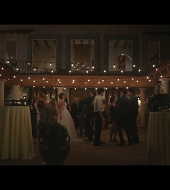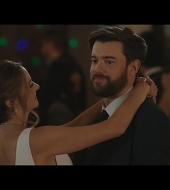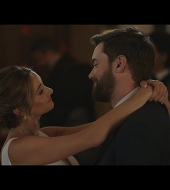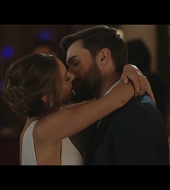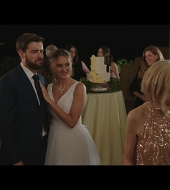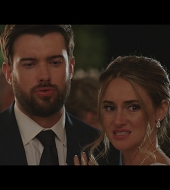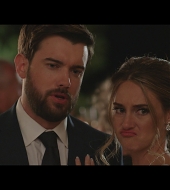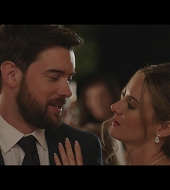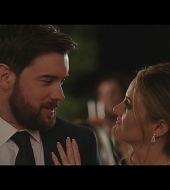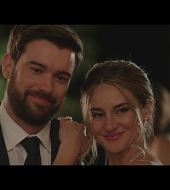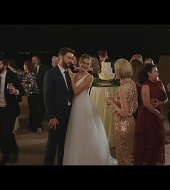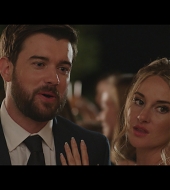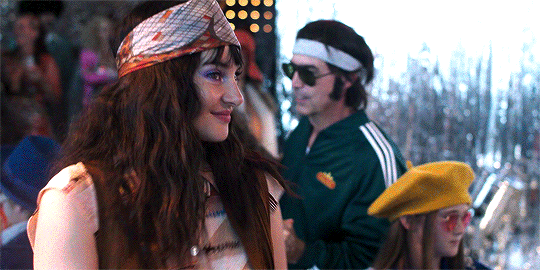Shailene Woodley has an enviable – and relative to real-life, a truly fictional – role as George Clooney’s daughter in the upcoming film, “The Descendants,’ directed by Alexander Payne. The bright-star actor, also known for “The Secret Life of the American Teen,” was recently in Chicago promoting the film.
Having turned 20 years old yesterday, the American Teen has neatly transitioned into this vital role as the Alexandra, the college age daughter of George Clooney (as Matt), as he tries to corral his dysfunctional family during a time of crisis. Woodley embraces all the uncertainly the character is asked to express, as she transitions from the frivolity of the teen years to the realities of adulthood.
Woodley was in Chicago last month during the Chicago International Film Festival, making the rounds in championing this unusual and hopeful cinematic work.
HollywoodChicago.com sat down for a revealing interview with the up-and-coming star.
You’ve been playing Amy in ‘The Secret Life of the American Teenager’ for four years now, and you play an American teen in transition in ‘The Descendants.’ Who feels more real to you, Amy or Alexandra?
They both feel extremely real to me, they are both dealing with hard things growing up. Every teenager has their own path and I guess issues are relative, because your issue is what you make it out to be and what you know, what your range of consciousness allows. So I think they are both real to me, just going through two different scenarios, with two very different styles of writing, developing different ways of approaching the experience.
What do you think ‘The Descendants’ says about life in the American family in 2011?
I think it speaks to the circle of life. ‘The Descendants’ approaches a situation that is highly dysfunctional and by the end it is still highly dysfunctional, but it is a ‘functioning’ dysfunction. And I think that a lot of families are that way, whether people like to admit it or not, every family has a dysfunction. It’s not a bad thing at all, it’s just a life’s journey.
While you were on location in Hawaii, what spirit did you derive from the atmosphere there, and was it different than the intense emotionalism you had to experience during the filming of the movie?
I had never been to Hawaii, and definitely my body – my capsule if you want to call it – was born in Los Angeles, but my heart is and has been, in my opinion, from Hawaii. [laughs] It’s a magical place, with a very strong energy, which grounded me, centered me and helped me listen to my heart instead of my mind. It basically allowed me to get out of the materialistic bubble with which we often surround ourselves. There are more chickens there than people, and the abundance of nature and oxygen was exceedingly brilliant.
What do you think about the adult attitudes that you and your movie sister, and the way you portrayed those characters, says about the way they were raised in that fiction? Did you talk about that back story with director Alexander Payne?
This is adapted from a novel, and Alexander’s screenplay is closely related to the novel. The book provided an immediate back story, because the book gave me 300 pages to indulge in. These characters were exaggerated a bit from everyday life, but there are a lot of families where the kids rule the family, and the Mom and Dad are a distant second.
Again, it relates back to dysfunction, these kids had the dysfunction of having parents, but those parents were not present. I think that’s why my character of Alexandra decides very early in life that she wasn’t going to let anybody hurt her, and she protects herself by being her own human being. That is why she does come off as abrupt and rude sometimes, but by the end she learns to be vulnerable, and that she needs a Dad.
Often language was used as a blunt weapon in this film, where your character actually encourages her sister to use a inappropriate epithet against one of her friends. Personally, how does blunt language effect you?
I try not to let words have any effect, I try to focus on feeling and emotions rather than words. But because human beings have chose language to communicate, words do have their place in this world. [laughs] I think that every word has a time and place, and has the definition that you want to place on it. It depends on the context. If a human is purposely trying to hurt another and they say a word they know is going to accomplish that, then I think that’s harsh and unnecessary. But if someone is fooling around, to each their own.
Again personally, what have you learned from your own descendants and how far back can you go?
All I know is that we’re five generations in California, which is rare, I would assume I had descendants in the gold rush. I’m a huge mutt of French, English, all European-wise. I have a picture when I was a baby of my great-great grandmother, my great grandmother, my grandmother and my mother so I did think about it during filming.
What did director Alexander Payne, in adding you to this ensemble cast, teach you about being an actor?
He didn’t so much teach me anything about being an actor, but he taught me a lot about who I am as human being. I’ve taken acting classes my whole life, and I always say I’ve never learned anything about acting in acting classes, but I’ve learned more about myself than I could ever imagine.
Alexander became, and continues to be, one of my top five favorite human beings on the planet. He is a magical man, and we connected really well. Just from getting to know him as a spiritual, artistic, creative and spectacular human being, I really learned more about myself.
‘The Descendants’ has much about secrets, both keeping them and opening them up to evolve. Why do you think it is in our nature, and the nature of the characters, to keep secrets?
I think secrets are kept because people are fearful of the outcome if they were to be exposed. Secrets are mostly fear driven. I do think the big theme in the film is forgiveness, and generally people are afraid to expose secrets because of the negative effect it might have. But to every negative effect, there can be a positive side, and that is accomplished through the transformative quality of forgiveness. Not only does my character learn to forgive, but so does George’s character, forgiving themselves because everybody has a part in a family.
Finally, the last question…
George Clooney! Is that the answer? I just assume that is always the last question. [laughs]
No, no, no, I don’t go for those cheap, non-consequential inquiries! [laughs] What do you think the future is for your character Alexandra in the context of what happens after her story, better because of what happened or will she still have some directional challenges going forward?
She will absolutely benefit from what happened to her. I’m a firm believer in when something challenging occurs in life, you go through that really dark low. And when you’re at that low, something will inspire you – whether it’s a leaf falling from a tree, something someone says or a book you read – and then you transform yourself and your consciousness expands.
I think it takes getting to a low point in life to get to a high place, and where you will be in the future. It’s a low for her, but at the same time she gained a father that she never really had before, and that is huge!






